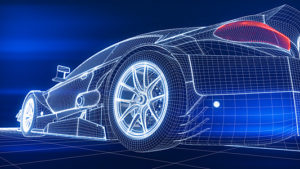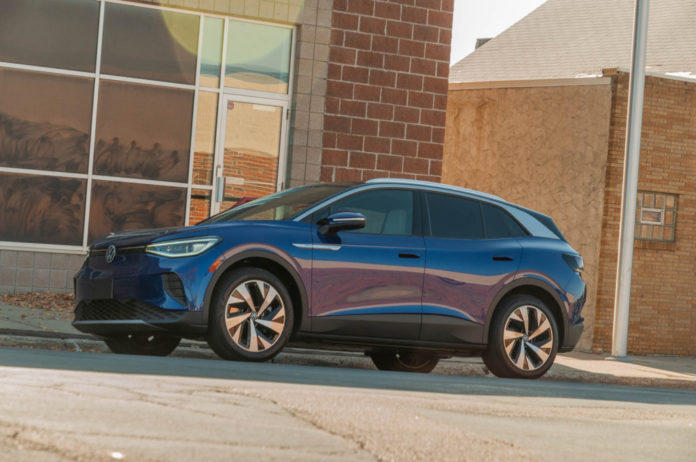Electric vehicles, and their potential to greatly cut our carbon footprint over their useful life, can make the most difference if they’re adopted in mass-market numbers. And among all of this year’s Best Car To Buy finalists, it’s the Volkswagen ID.4 that has the greatest potential to truly go big.
Just over five years ago, as part of some corporate soul-searching born out of the diesel scandal, the German automaker announced an initial plan to pivot toward affordable, mass-market electric vehicles—and to establish a larger presence in the U.S. market with local production of an EV after 2020.
As we near the end of 2021, VW has held to its word on timing. The ID.4 electric crossover, the first U.S.-bound model built on its MEB platform conceived for millions of EVs globally, arrived earlier this year. It’s scaling up production and sales on existing ID.4 models starting at $41,190, while Tennessee-built versions of the ID.4 are due to arrive in 2022 and will include a base version starting at about $36,000.
The standard, single-motor ID.4 is an excellent vehicle, too. It’s attractively styled, its packaging is brilliant, and its seats aren’t the compromise we’re used to in affordable EVs. The cabin is well-isolated from wind noise. It offers the potential to charge from 5% to 80% in 38 minutes with increasingly common 150-kw DC fast-chargers. And it rides and handles with a verve that goes above and beyond its rather leisurely 0-60 mph dash of about 7.5 seconds.
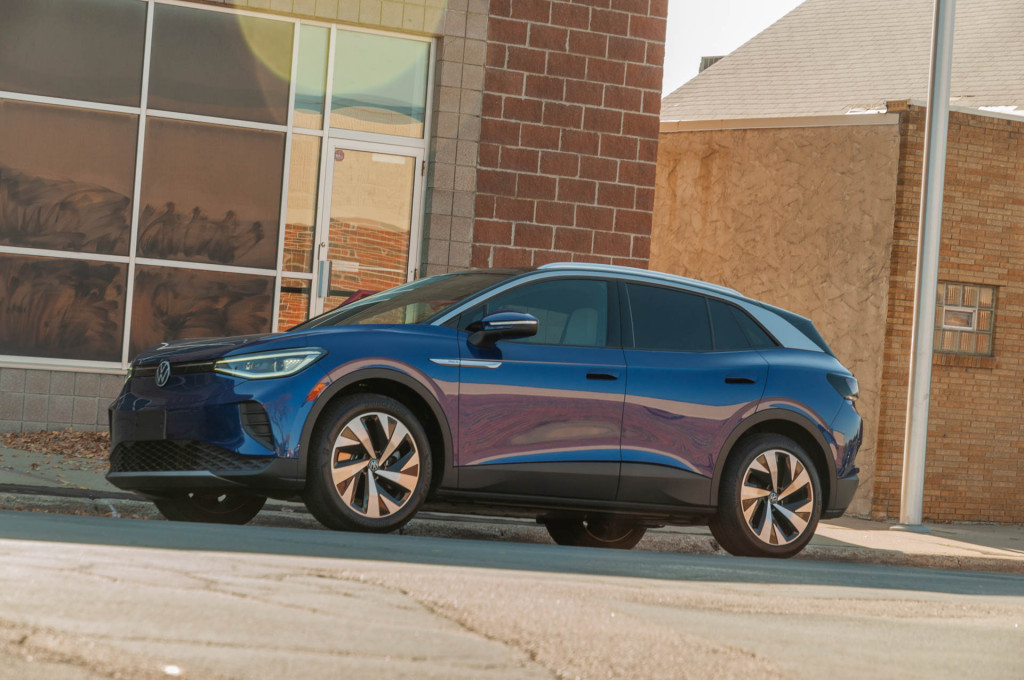
2021 Volkswagen ID.4
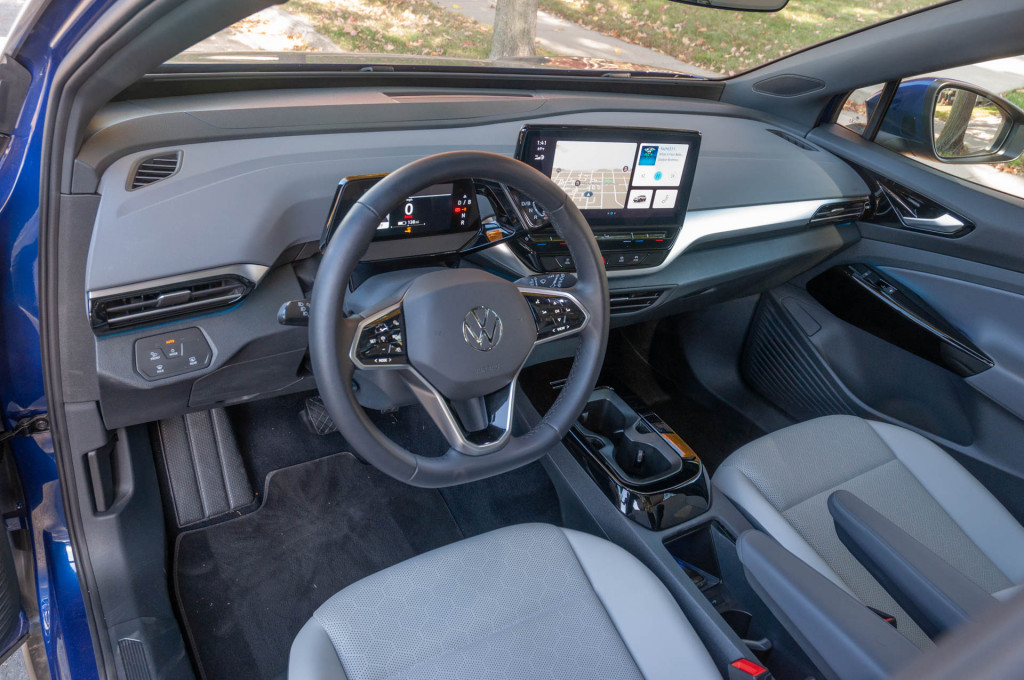
2021 Volkswagen ID.4
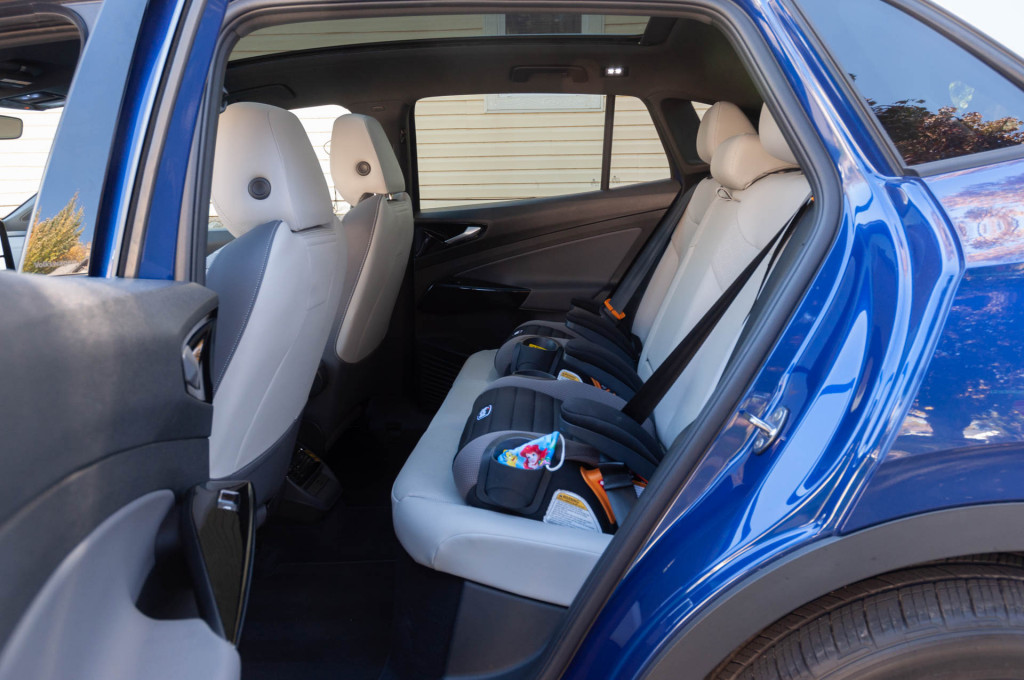
2021 Volkswagen ID.4
Dual-motor all-wheel-drive versions of the ID.4 add a second motor at the front wheels for more traction and more zip. With 295 hp and 339 lb-ft of torque total, versus 201 hp and 229 lb-ft, they cut the acceleration time to about 5.5 seconds. That’s not a huge difference, but it’s enough to graduate from quick enough to pulse-quickening.
The ID.4 is innovative, but it skips many of the calling cards that distinguish the leading edge. It doesn’t fast-charge at an extraordinarily quick rate, and it doesn’t offer bi-directional charging, or focused efficiency hardware like a heat pump in the U.S. market. There aren’t any “insane” or “ludicrous” performance modes. It has old-fashioned rear drum brakes when it’s not using its regenerative braking. The reason for all this is to keep costs down and achieve that slight profit margin on the vehicle line that will enable VW to make them at more than niche levels.
One of the most significant misses in the ID.4 doesn’t have anything to do with the propulsion system or the packaging—or the range, which goes up to 260 miles depending on the version and, in experiences so far, hasn’t let us down. It’s the interface. VW’s latest corporate infotainment system relies on laggy touch surfaces and a menu system that doesn’t flatten its menus out quite enough. In subsequent revisits, we’ve seen it getting better and it’s mostly forgivable—assuming future software updates that truly fix the behavior. ID Light, which uses a light strip across the top of the dash to quickly signal to the driver, is a very cool addition, though.
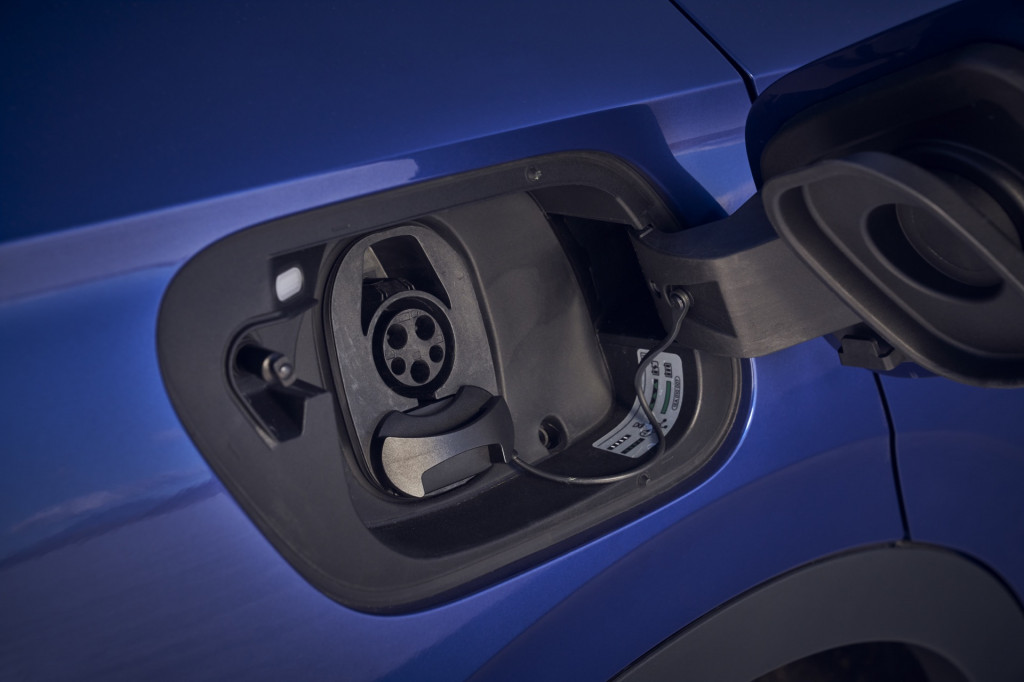
2021 Volkswagen ID.4
Volkswagen has said repeatedly that it’s positioning the ID.4 as a serious mass-market option—versus the Toyota RAV4 and Honda CR-V—for households that can’t afford multiple vehicles for the same task. To that, the lack of compatibility for the Plug&Charge functionality (allowing owners to link payment credentials to the vehicle’s unique identifier) enabled on VW’s own Electrify America network continues to be another strange omission.
Back to the numbers, VW has disclosed that it aims to sell 500,000 ID.4s annually (globally) by 2025—with VW’s brand CEO Ralf Brandstätter last year saying that it will become “the driving force behind our reorientation a hundred thousand times over.”
On the way to “millions, not millionaires,” as VW executives have put it, is there any better way to help families on a budget go electric?
—
Visit our editorial group’s other Best Car To Buy awards—at Motor Authority and The Car Connection. And vote for The Car Connection’s annual Driver’s Choice.
